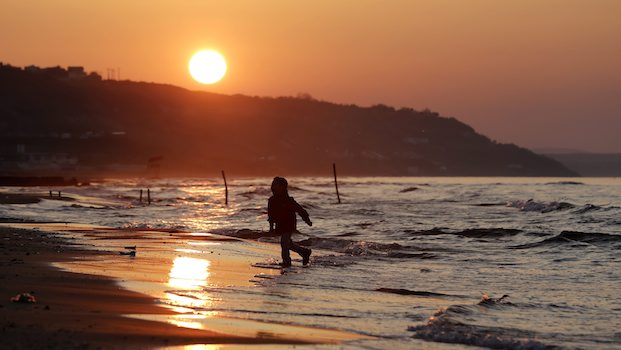Last week was an eventful one in Turkey: the Syrian conflict continued to threaten stability and security along the southern border, the disgraceful Twitter ban was lifted, and of course there were the local elections. As these words were being written, the ban on YouTube was also lifted.
Yet people in Turkey spent all of last week talking about the elections. The unofficial results show that the AKP won a clear victory, securing 45 percent of the vote with an extraordinary 89.1 percent turnout. The question that seems to dominate the debate is why another election resulted in another victory for the governing Justice and Development Party (AKP).
It is interesting to look at the areas where the AKP was defeated at the polls. These areas can be divided essentially into eastern and western Turkey. What I refer to as “western Turkey” are the coastal cities. These cities are not part of the AKP success: They have never voted for the government throughout the 12 years of AKP rule. Why not? Most because Turkey’s geography comprises different demographic cultures. The western regions have a different concept of freedom to those in the east. Since the western regions are coastal tourist cities, they are more libertarian and their communities feel much closer to European culture.
The coastal cities reacted to the bans quite differently to other cities in Turkey. They value the freedom they have when it comes to their lifestyle, the way they dress or the ways they choose to have fun. Any initiative reminiscent of repression therefore troubles them more than anyone else.
The AKP cannot reach the coastal cities, but not because it is a religious party. The reason is that the AKP has failed to give the impression of being libertarian, modern and sufficiently distanced from prohibitions.
The AKP leadership met after the elections to try to discover why the people of western Turkey did not vote for them, even though (at least in their view) there was no interference in their private lives. The answer is that even if there was no interference, the general impression these people in the west have formed frightens them. They imagine that a conservative and repressive mentality in favor of prohibitions predominates. They believe that the government speaks to a more conservative base, not to them. Although Prime Minister Erdoğan says that “everyone, with or without the headscarf, is my sister” at every opportunity, they fail to feel that in practice.
The government now needs a libertarian policy of opening up. It needs a policy that will recognize the freedom and culture of the coastal cities, a policy that will not exclude them, and will emphasize the important place of art, science—and women. It must not be forgotten that bans and prohibitions, and even words reminiscent of them, are perceived of as repression, and that forms the basis of the unease.
Let us move on to the east. The Peace and Democracy Party (BDP), known for its Kurdish identity politics, was victorious in the southeast of Turkey in the elections. The BDP is a democratic party, and it is natural it should win various mayoralties. What is not normal is for the Kurdistan Workers’ Party (PKK), a scourge on Turkey for the last 30 years, to support the BDP. The BDP has triumphed in cities where the PKK enjoys popular support.
The end to the clashes in the country following the peace process initiated by the government a year ago delighted all of Turkey. Today, however, the PKK has changed tactics and is aiming to break the southeast away from Turkey, not through the guerrilla struggle, but by capturing its citadels from the inside.
Pressure from the PKK and reports of people being forced to vote in these regions during the elections shows the continuing presence of an extraordinary threat. We must also remember that with the exception of the AKP and BDP, no other party was able to go to those regions and have electoral rallies for security reasons.
The tactic now seems to be to split the southeast away from Turkey by using the means and money of the Turkish government, and handing municipalities over to a party sympathetic to the PKK by coercing the local residents and engaging in communist propaganda with far greater ease. Efforts have been made, in particular over the last few months, to acclimatize the Turkish people to the idea of devolution through scholastic words and veiled talk of autonomy. They are trying to stage-manage perceptions through terms such as “democratic autonomy” and “cantonization” that will attract less criticism. The aim is to gradually legitimize the PKK in the eyes of the people and give the impression that the Ankara government has been defeated.
Division always means discontent. But it is terrifying for a region that is a part of your country to break away and come under the control of a Stalinist terror organization. The Kurdish people, subjected to policies of assimilation by the arrogantly so-called “White Turks,” had to face the scourge of terrorism perpetrated by the PKK to have such a tragedy inflicted upon them. The election map has clearly revealed the PKK’s intentions. This is the greatest danger Turkey is now confronting.
